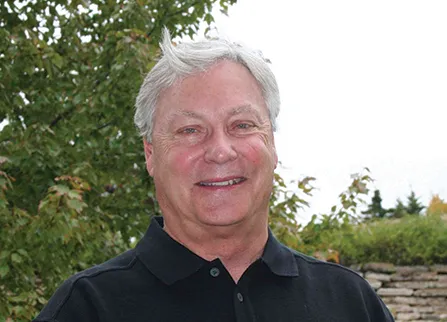By John Schlageck, Kansas Farm Bureau
This is a special week for those who are involved with the production of food and fiber. It marks the 47th observance of Earth Day on Saturday, April 22.
The original premise of Earth Day was to promote the conservation of our natural resources. It is only fitting that on this day we showcase the progress of the Kansas farmer and rancher – but is there really any question most people who live on planet Earth support its survival?
To help put Earth Day in perspective, this celebration of our planet really began gathering steam at the beginning of the ‘90s. It became a very “in” thing to bang the environmental drum.
Back then, I remember “Fortune” magazine proclaiming for the first time the environment was a cause worthy of saving. Others shouted from the mountaintops that while Motherhood, apple pie, baseball and the flag all may be subject to controversy – saving our planet was beyond debate.
This same idea is back in vogue today. In this perfect world, people will fully understand the tools they use, and some believe they can provide for themselves without depending on the professionals and specialists.
Life would slow down and be viewed as a whole. This ideology offers a sense of place – of being rooted. Ancient wisdom and grassroots democracy are essential. Quality and equality of life are where it’s at. Much is said about ends but little about means. This ideology speaks poetically about much – plainly about little.
So, what happens after Earth Day passes?
Most folks go about their daily lives and forget about Earth Day. Some will focus on small things like recycling or changing their shopping habits. Some fringe environmentalists may be forced to re-think their radical positions of imminent apocalypse.
Protecting and caring for this old world we call home is often a struggle. Like each day’s sunrise and sunset, we often take it for granted. Conservation of our planet can be a challenge because some regard the land as a private commodity.
Others, including farmers, ranchers and those who make their living from the land, view this planet as a community to which they belong. They love, respect and care for the land. They adhere to an ethic, which enlarges the boundaries of their community to include soils, waters, plants and animals.
There is no other way for the land to survive the impact of modern man. We must always remember while our land yields fruits, vegetables and grains, it also yields a cultural harvest – one we as inhabitants all share and must nurture.
Let’s remember throughout the year, not only on Earth Day, that land is used right when it tends to preserve the integrity, stability and beauty of the living community. It is used wrong when it tends to be otherwise.
The bulk of all land relations hinges on investments of time, forethought, skill and faith, rather than only investments of capital. We have continually modernized our farm equipment, plant foods, herbicides and other production inputs. We are proud of the abundance of the crops we produce.
We can never throw away or limit the tools which have provided so much for so many. Let’s remember throughout the year our commitment to the successful and wise use of our life-giving land. Let’s remember we have not outgrown the land.
John Schlageck is a leading commentator on agriculture and rural Kansas. Born and raised on a diversified farm in northwestern Kansas, his writing reflects a lifetime of experience, knowledge and passion.
John Schlageck is a leading commentator on agriculture and rural Kansas. Born and raised on a diversified farm in northwestern Kansas, his writing reflects a lifetime of experience, knowledge and passion.




